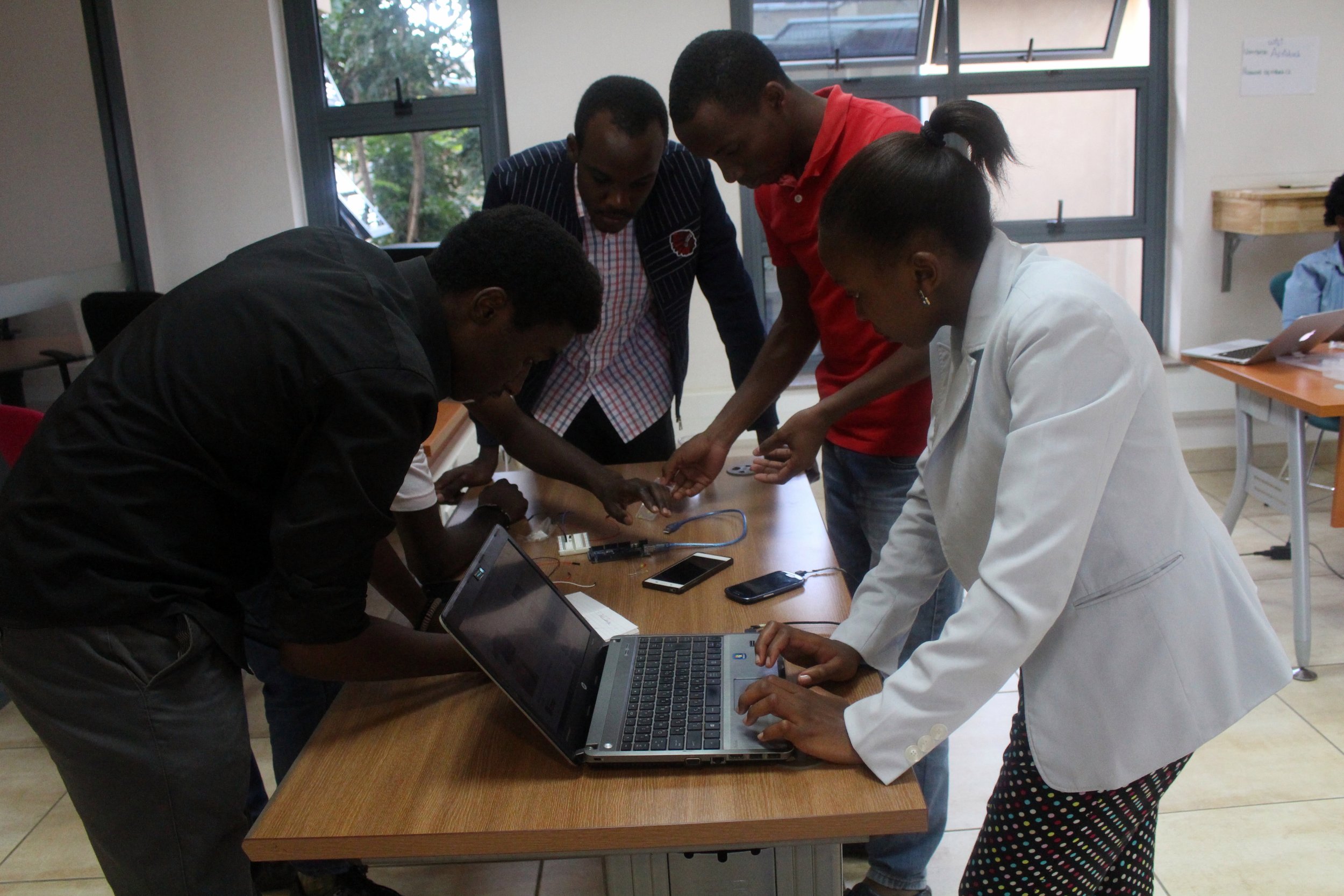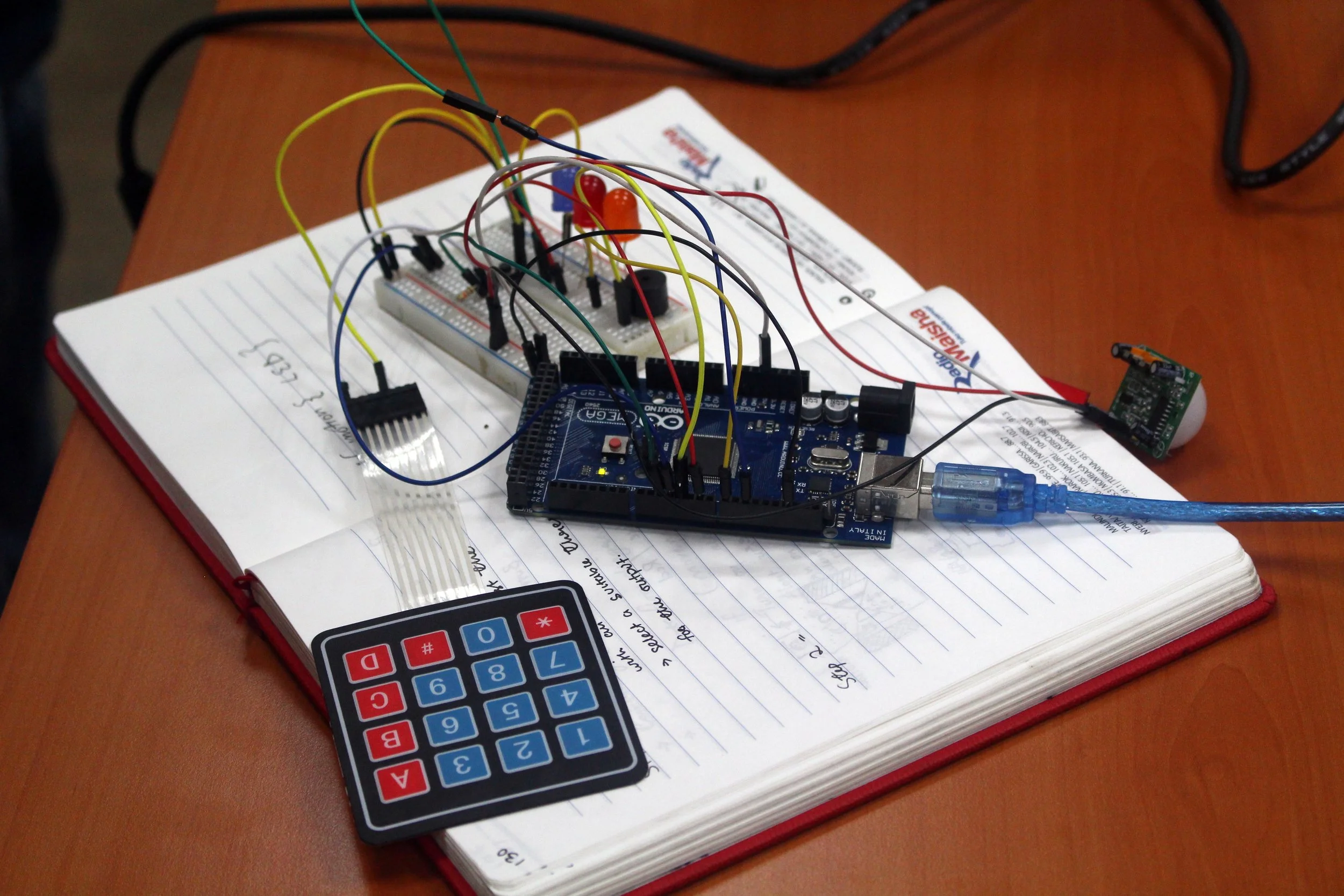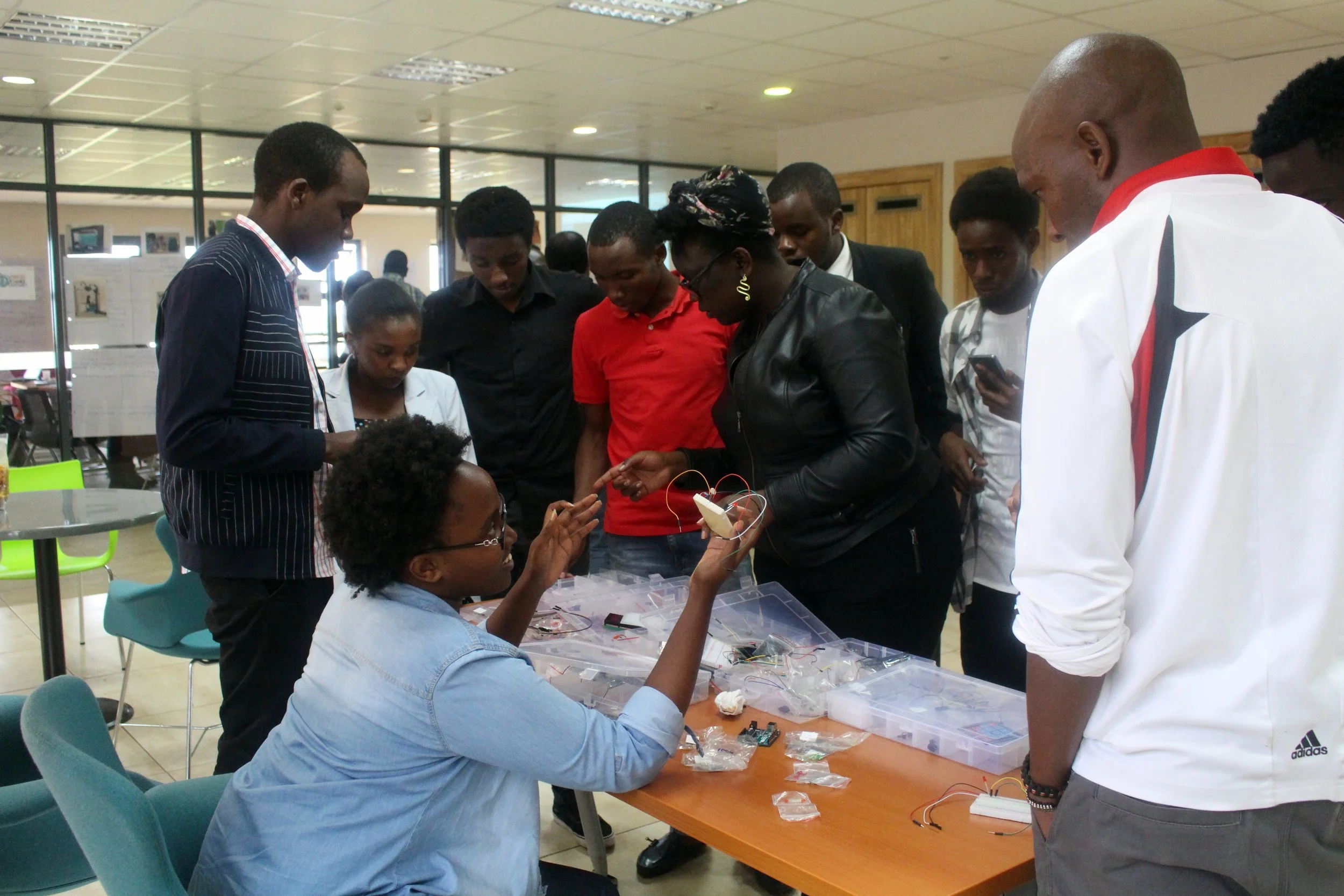An interactive Design & The Internet of Things Hackathon held in The Innovation and Incubation Center at the United States International University (USIU)-Africa on 3rd June 2017.
Nineteen participants gathered to create solutions to various social issues in Kenya throug collaboration and co-creation.
The thematic areas for the hackathon were:
Food Security
Energy
Road Safety
Security (Personal & Public)
In teams, the participants were first guided through the Design Thinking process where they employed Empathy to interview users in order to gain a better understanding of how their users perceive issues related to the themes. Following that activity, the information gathered was used to create an Empathy Map (seen below) that illustrated the dominant needs and problems that were captured during the interview process.
The data was later synthesized and insights were formed, creating the basic design requirements and constraints for the design challenge. Finally, teams arrived at a problem framing statement that summarized the problem, need and innovation of their proposed solution.
One completion of the Design Thinking session, Elizabeth Ondula from Brave Ventures, conducted an electronics lab where participants gained skills in The Internet of Things (IoT) and in basic programming using Arduino. The session culminated in a hackathon whereby teams developed interactive and user-centred solutions using various electronics.
PROJECTS
ENERGY
To design a smarter, built environment to monitor, control and conserve energy consumption to improve efficiency and cut costs.
Using a PIR motion sensor, the team demonstrated a lighting system that is triggered by movement.
SECURITY
To develop a quick response security system to improve disaster management and preparedness.
The team showcased a system that incorporated camera surveillance to detect motion and record and monitor activities which are then analyzed by relevant security personnel to determine the severity or validity of the security claim.
ROAD SAFETY
The team chose to build a motor-speed detection system that can be installed in vehicles.
When a car is being driven at a speed above an acceptable range, an alert goes off in form of LED lights. The alert can be disarmed through pressing a manual override button.
FOOD SECURITY
To build a system that can collect information on atmospheric conditions (temperature, humidity, etc) and soil conditions (pH, nutrient content, etc) from certain areas to inform farmers about suitable agricultural practices, thus creating a 'smart' farm.
Using a temperature sensor, the team demonstrated a system that alerts farmers when the temperature has risen above optimal conditions.
JUDGING
Karl Heinz Tondo, David Ismail, Kenneth Kinyanjui and Muuo Wambua were invited to judge the projects on ingenuity, designand engineering and to select an overall winner.
Congratulations to the Food Security team (below) for being selected as the top team for their innovative project! They won free R Programming Training by Brave Ventures!







